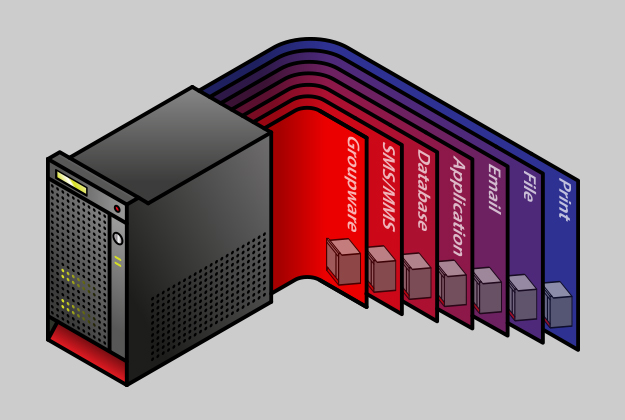Virtualisation
Virtualization can take many forms depending on the type of application use and hardware utilization. The main types are listed below
- Server Virtualization
- Storage Virtualization
- Network Virtualization
- Desktop Virtualization
- Application Virtualization
-
Benefits
- Removal of special hardware and utility requirements
- Effective management of resources
- Increased employee productivity as a result of better accessibility
- Reduced risk of data loss, as data is backed up across multiple storage locations
- Maximization of server capabilities, thereby reducing maintenance and operation costs
- Smaller footprint as a result of lower hardware, energy and manpower requirements
- Legacy applications can continue to run on old OSs that run as a guest operating system on VMs
- Changes in workload intensity levels can be taken care by dynamically shifting resources and priority allocations among VMs
Virtualization lets you easily outsource your hardware and eliminate any energy costs associated with its operation. Although it may not work for everyone, however the efficiency, security and cost advantages are considerable for you to consider employing it as part of your operations.
